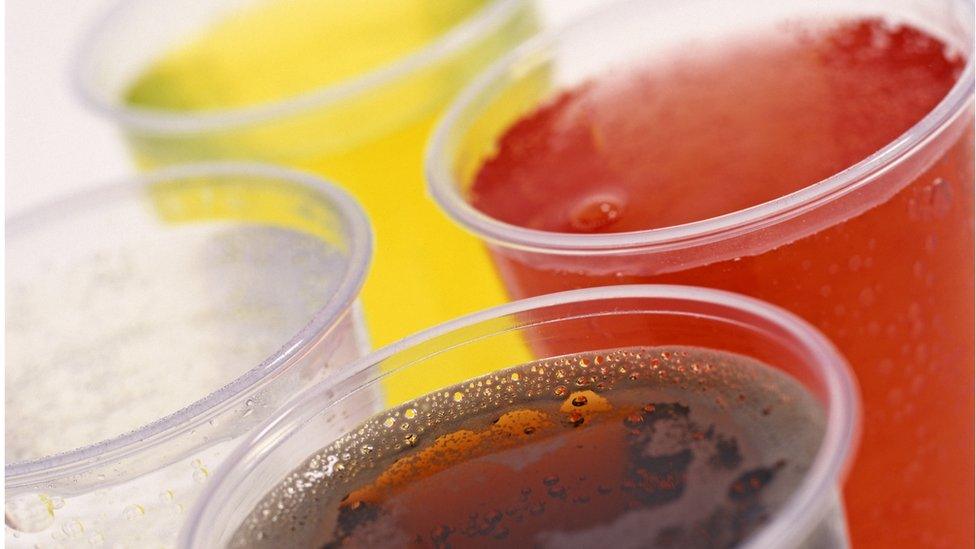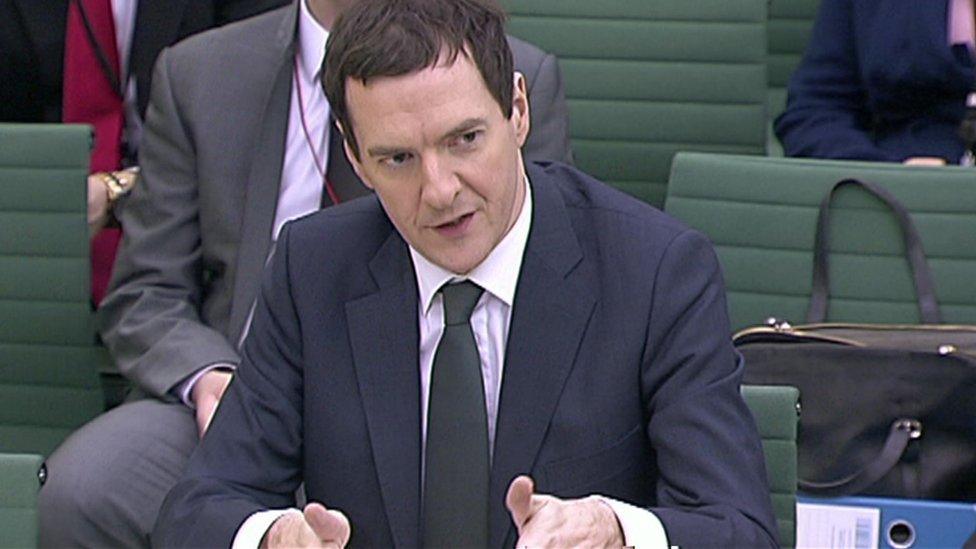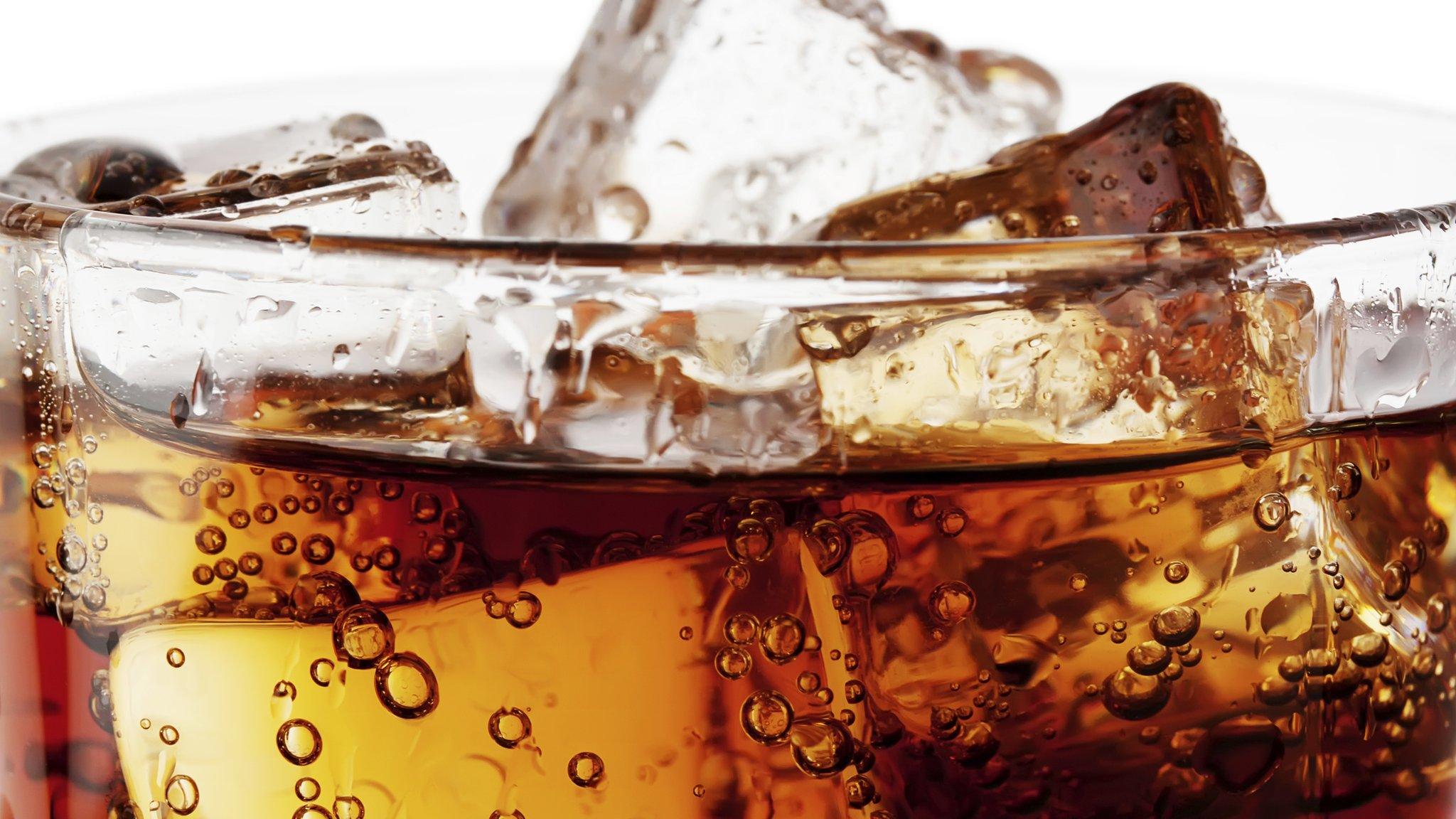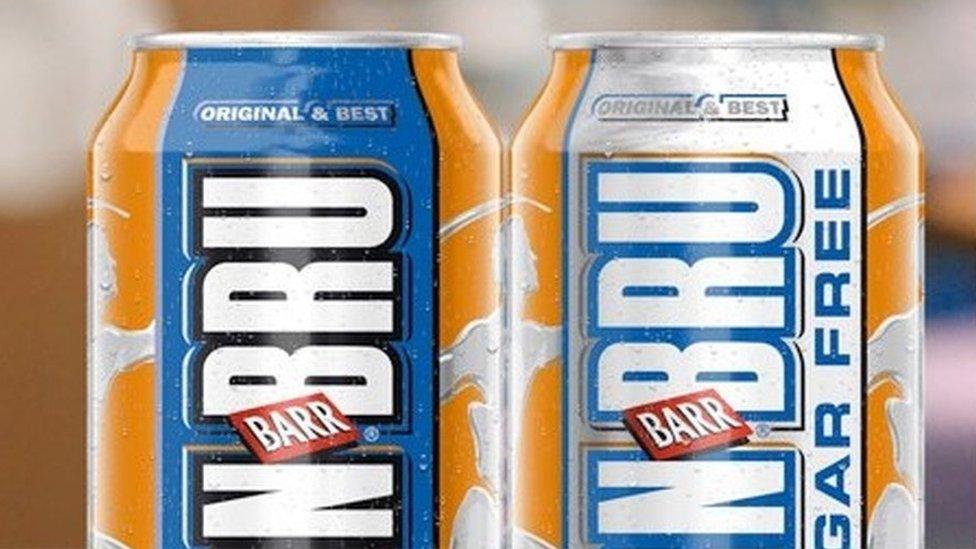Sugar tax - will the Chancellor have to change the recipe?
- Published

George Osborne imposed a sugar tax on soft drinks producers to come into effect in 2018
There may have been threats of legal action but the Chancellor George Osborne is defiant and says "bring it on".
Stand by for a prolonged debate and argument over the detail of the proposed sugar tax on soft drinks - which might possibly end up in the courts.
Mr Osborne made it as clear as he could in front of the Commons Treasury Select Committee that he would press on with the measure whatever the objections from manufacturers: "It's not a threat or a promise, it's the way it's going to be. And I think it's the right thing for this country," he said.
There have been reports of soft drink producers considering a possible European Court challenge. But industry sources indicate this is premature and that they are waiting to see the full detail of the levy, which is set to be imposed in April 2018.
The Food and Drink Federation noted that the Chancellor told MPs he received clear legal advice that a sugar tax would be lawful. The organisation has now written to the Treasury asking for this advice to be published.
Two tax bands
We don't yet know at what level the tax will be set. The Treasury has said there will be two bands, 5g and 8g of added sugar per 100 millilitres.
The Office for Budget Responsibility says it's assuming the levy will be 18p and 24p per litre respectively to meet the government's revenue targets, but there has been no confirmation of this.
Milk-based drinks with added sugar and pure fruit juices will not be subject to the levy. But these exemptions have been questioned in some quarters.
Producers of cranberry juice, which can include added sugar, have already begun a campaign to be taken out of the reach of the levy, arguing for the health benefits of their product.
Researchers at Liverpool University and Queen Mary, London, have said they feel the amount of sugar in some fruit juices is "unacceptably high".
The Institute for Fiscal Studies has published its own detailed analysis. It says that people might simply switch from drinks which are subject to the levy to those which are not and other sweetened products. The IFS also points out that small drinks producers are exempt and this could mean that these operators might promote high-sugar products which are tax-free more vigorously.
The IFS notes, too, that soft drinks are subject to VAT while cakes and other sugary foods are zero-rated, which means in effect that they are being subsidised by the tax authorities.
Critics' views
The IFS, which does not pull its punches if it feels the need to criticise a tax policy, makes clear that a levy on sugary drinks is not necessarily a bad idea. But it does argue that the Chancellor needs to rethink the banding system.
Under the current plan, a drink with 8g of sugar per 100ml will be taxed at the same rate as one with double the amount of sugar or more. The Chancellor, argues the IFS, should ensure the tax better targets the sugar content of drinks.
The British Soft Drinks Association says it is "absurd" to pick on soft drinks when this is the only category in the food and drink industry sector which has consistently cut sugar content in the last few years. It will continue to lobby hard against the introduction of the levy and argue for a voluntary sugar reduction plan.
So the question now is how many more interested parties and critics will respond to George Osborne's call to "bring it on".
The consultation process, once the documentation is released, is sure to be a lively one.
- Published24 March 2016

- Published16 March 2016

- Published17 March 2016
- Published16 March 2016

- Published19 February 2016
